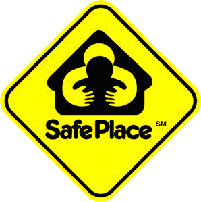

 |
 |
|---|
| Huckleberry House | What's New | Agency Information | How We Help | How Can You Help |
from our house to yours ------------------- |
|||
Transitioning: Older Teens and Young AdultsIn this column we often talk about the tasks and trials of parenting minors-teens ages twelve through seventeen. This time we focus on older teens, ages 18-22. Once your child turns eighteen, some issues change and some stay the same. One of the biggest challenges for parents of teens 18 and older is that, legally, your child is considered an adult. Unless your teen has been “held over” and remains in custody of the court or Children’s Services (usually until age 21), your child can decide where to live, get a driver’s license, sign a lease and other legal contracts, and on and on. This can pose problems if your child is living at home. Parents often hear, “I’m an adult now; you can’t tell me what to do”. In some ways, this is true. Your child is now responsible for his or her own actions. A fistfight with peers previously might have resulted in suspension from school or grounding at home. Now, it can be considered assault, with possible criminal charges. Young adults engaging in sexual relationships with minors aged 15 or younger can be charged with statutory rape or other sexual misconduct. It can be tough for young adults to understand that, while their parent no longer controls them, their parent cannot protect them from their own actions either. So what to do? As always, it is important to remember that every teen develops individually. Also, every teen develops in different areas at different rates, and we know that some parts of the brain, especially those involved in decision making and self-control, don’t finish growing until roughly age 25. A young man who looks fully-grown at 18 might still be very immature emotionally. Help your teen look at his strengths and his growth areas. A young woman who is old enough to go to college may still need to have her bank account supervised by you. A young man who has just turned eighteen but who is responsible enough to work and pay bills may be ready to move out on his own-with help! Even though the law views each young adult as being the same, each individual really is different. Young Adults Out In The WorldYoung adults often struggle with feeling confident and ready to tackle the challenges of the real world. It can help to know that there is some kind of safety net. A young adult out on her own might still need to come home to get help with a problem, or to eat a home-cooked meal. It is important, though, that you work out boundaries to help that young person continue to progress. Coming home to do laundry should also include bringing her own detergent, or helping around the house while the spin cycle is going. Dropping off baskets of clothes for the Laundry Fairy (you!) to take care of while she watches TV or goes out with friends is probably not a system that will work for long.
|
Young Adults Living At HomeOld enough to vote? Old enough to get a job and help with bills! Taking classes at college? Smart enough to know when the garbage needs to go out (without constant nagging). Your young adult should help to offset the cost of the food and shelter you provide, just like in the real world. You may decide to charge rent, as some parents do, but even if you do not, a young adult living at home should take on more adult tasks and responsibilities. This helps your young adult to keep growing. Helping pay for groceries and taking more responsibility with chores are great ways to do this. “I don’t have to report to you!”They’re right: As an adult, your young person is no longer your responsibility in terms of where they are or what they’re up to while they’re out. No police officer will escort them home after curfew. However, people living in a home together share a responsibility not to drive everybody else in the house crazy. Coming in at 2:00 a.m., playing loud music while entertaining friends, etc. might well cause problems in any living situation. It is important to outline your expectations. “Yes, you no longer need to answer to me in the same way you did before. But if you are out ‘till all hours, I will sit up and worry anyway. If you blast music and wake everybody up, I will be very upset, and this arrangement will have to change.” Then stick to it. Part of becoming an adult is taking responsibility for your behavior and living with your choices. Know the systemLike teens, young adults sometimes need help developing skills and transitioning to independence. Some of the services available to teens are also available to your young adult. School systems can continue to help young adults with education plans. Franklin County offers assistance for young adults who qualify for mental retardation/developmental delay (MRDD) services. Vocational programs like the Bureau of Vocational Rehabilitation (BVR) or COVA can help young people prepare for work readiness. If you are already linked with some of these services before your teen turns eighteen, ask about their transition plan. Huckleberry House’s Youth Outreach Program serves youth through age 22, and can help to link you with resources in the community. Call 614-294-8097 if you would like to be referred to this program.
|
||
| 1421 Hamlet St. Columbus, Ohio 43201 (614) 294-8097 Huckleberry House, Inc. © 2004 | All Rights Reserved |
|||